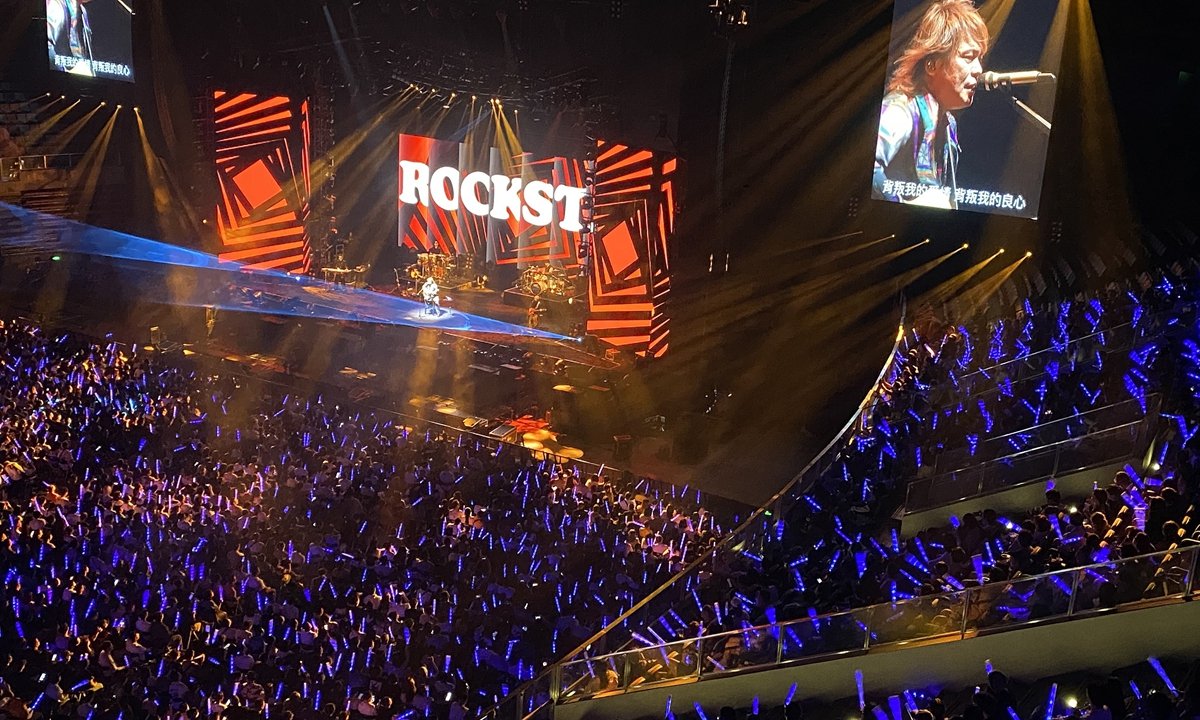After the dark shadow of the COVID-19 pandemic receded, the sun began to shine again on the world of music in China. 2023 heralded not just a resurrection but a remarkable metamorphosis in the country’s concert scene. With major cities like Beijing and Shanghai leading the way, the sheer number of concerts and performances attest to a thriving and evolving performance market.
The Changing Face of Concerts
Historically, concerts were about sitting or standing in a crowd, all eyes and ears attuned to the artist on stage. The dynamics of the concert scene, however, seem to have undergone a notable transformation. While in the past fans were listeners, absorbing every note and lyric, today, they are active participants, often belting out the melodies alongside their beloved singers.
One such striking instance involves Wu Bai, often crowned as the ‘King of Live’. His recent concert not only set social media abuzz but also symbolized this shifting concert paradigm. Throughout the performance, instead of being the sole voice, Wu Bai was harmoniously accompanied by thousands of his fans. So engrossed were they in the spirit of the event that even after the singer’s departure from the stage, the crowd continued their passionate renditions of his songs.
This led to a light-hearted observation amongst netizens that Wu Bai could, in fact, host a concert without even gracing the stage. “Just set the date and venue,” they joked, “and the fans will ensure it’s a ‘Wu Bai concert without Wu Bai.'”
But this isn’t just the Wu Bai phenomenon. Other prominent artists are witnessing similar waves of enthusiasm.
Take, for instance, the concerts of Hong Kong sensation Yang Qianhua (known to many as Miriam Yeung). Her song, “Old Man Down”, and the melodies of emerging artist Mao Buyi’s “Ordinary Day” have also become anthems for collective singing, fostering a sense of community.
The Singer-Fan Bond: Redefining Relationships
There’s something deeper at play here than just shared melodies. The dynamics between singers and their fans are being redefined, fostering a sense of camaraderie and mutual respect. This evolution emphasizes not just the artist’s presence, but the combined experience and emotion that is shared between artist and fan.
One Weibo user captured this sentiment eloquently: “In my initial concert-going days, I was there for the artist, their voice. I didn’t want other fans overshadowing that. But today, it’s different. Engaging with the artist and the audience around me, being a part of that collective moment – there’s an unparalleled sense of involvement.”
However, this sentiment isn’t universally shared. Some purists argue that the overpowering voices of fans can sometimes drown out the artists, detracting from the authentic concert experience.
Innovative Concert Formats: The Balcony Phenomenon
Amidst these changes, another intriguing concert format emerged in Shanghai – the “Balcony ticket“. Imagine the scene: residents standing on their balconies, absorbing the melodies from a nearby concert, swaying and singing, replicating the concert environment in their personal spaces.
This trend gained momentum when a netizen named “A group of NoNo” shared a video. Living close to a venue where Jay Chou was performing, he captured the concert’s essence from his balcony. Given the notoriously high ticket prices and typically sold-out statuses of such concerts, the video generated a flurry of excitement. Many reached out, expressing their willingness to pay for such a “Balcony ticket”. However, “A group of NoNo” declined these offers, emphasizing the importance of privacy and security in residential spaces. “Our homes are private sanctuaries. We must respect and safeguard the privacy of our fellow residents,” he noted.
The Evolution of Fan Expressions
Beyond singing, fans are finding myriad ways to communicate their admiration and connect with artists. Special banners bearing heartfelt messages, thematic clothing, and unique accessories are becoming common sights. These gestures are not just symbols of fandom but a testament to the ever-evolving relationship between artists and their admirers.
The Future of Concerts: An Industry Perspective
As China’s concert landscape continues to flourish, it also presents challenges and opportunities. The onus now rests on performers and event organizers to navigate this new terrain, balancing traditional concert experiences with the evolving demands of an engaged audience. According to industry insiders, the key lies in innovating while ensuring that the essence of music and the artist-fan bond remain uncompromised.
The concert scene in post-pandemic China is not just about recovery; it’s about evolution. As fans become integral participants and not just passive listeners, one can only anticipate where this shared journey of music will lead next.
Read More:
